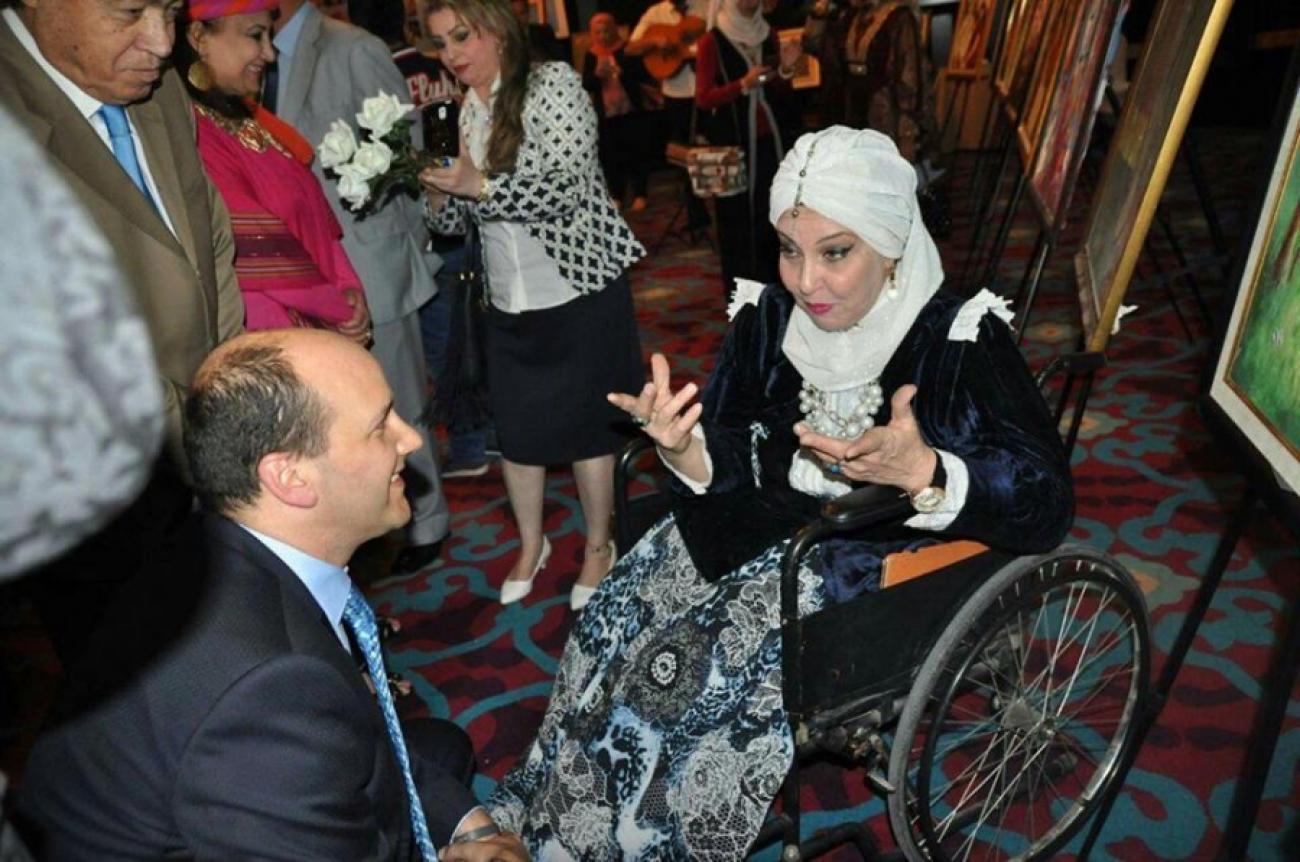Every year on 8 March, women all over the world participate in different activities to celebrate their successes and highlight the challenges they continue to face on issues ranging, among other things, from proper and safe health services, education, equal access to job opportunities as well as political participation.
This year, the global theme of focus is “women in the changing world of work, planet 50-50 by 2030”. In Iraq, women are raising a campaign to unite against corruption.
UNAMI PIO has been talking to some Iraqi women in different fields of work about their activities.
Ban Abd Al-Lateef, a poet and physically challenged activist, tells her story:
Question: As a female artist, what are the most important issues that you portray in your work and why?
Answer: “The most important thing that I focus on in my paintings is a woman; I draw her and sometimes draw for her. In both cases, I try to be her voice and embody her importance in life, therefore, I always symbolize her with a Palm tree, that express her tender, glory and patience, as I embody her dreams and pains. I make sure not to present her in my paintings as a weak creature. I draw her with a challenging spirit in my paintings.”
“I think that the majority of people perceive the role of the woman as confined to the house and ignore their role as a significant entity who has feelings. They are half of the society, and responsible to guide and raise the other half. It is necessary to sail in her world; the best who understands and describes the woman is the woman herself.”
Question: How have you been able to motivate other physically challenged women to empower themselves?
Answer: “As an administrative member of the Independent Women's Voice organization (NGO), I am the head of the brave woman committee. The president of Voice of Independent Women’s Organization Dr. Lamiaa Talabani, made this assignment, titling the PWD (Persons with Disability) woman as “brave woman” instead of ‘women with disabilities’. I am also responsible for the PWD women file in the ‘Women's Gathering of Civil Iraq,’ and responsible for children and women Committee in the PWD network, which includes 40 NGO.”
“I do my best to give a hand to PWD’s in all age categories and to convey my experience to them in order to make sure that there is nothing impossible as long as you have the will power to do it. I convince the woman to have confidence that she is important and make her believe in her potentials. This is how I have been trying to provide psychological structure for women. Afterwards, they can choose which way they want to proceed and express themselves.”
Question: In your experience, what needs to change in the Iraqi society to ensure that women and girls get equal access to opportunities?
Answer: “Firstly, granting equal visibility for women in Iraqi society; women getting the attention and appreciation that befits their social status. On the other hand, I think the rural woman does not enjoy the independence and freedom of expression....she is not aware of her rights, and cannot be self-fulfilling in her dreams.... “
“Secondly, we need to have specific governmental programs to develop the efficiency of women. What is happening now are only civil society-based activities.”
“Thirdly, we need intensive media coverage, such as television programs or newspapers or anything to make women and community aware of women’s rights and the importance of their role.”
“We need laws to serve her in both work and family aspects. I have already talked about it and keep asking, “What about the rights of women?” The answer is, “There are many regulations and decisions that serve women.” However, the reality is, it is just ink on paper. In short, I feel that the opportunities are available more for the male community and the majority prefer that women remain house captives, one to give birth and who serves as a good cook.”
------------------------
Original transcript translated from Arabic to English by Thura Kareem. Edited by Celia Thompson.
You can find the Kurdish and Arabic version of this story on our Arabic and Kurdish social accounts.


